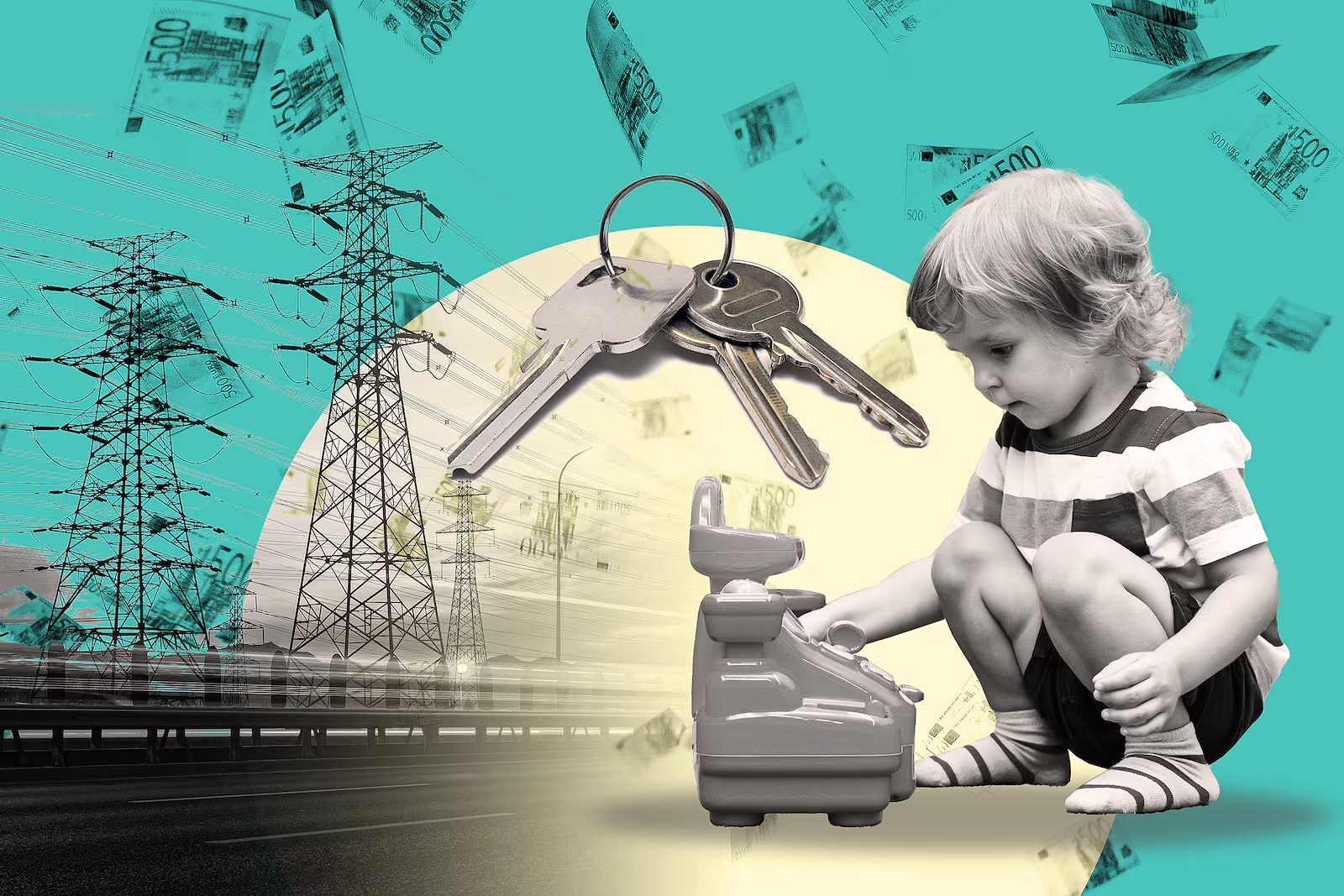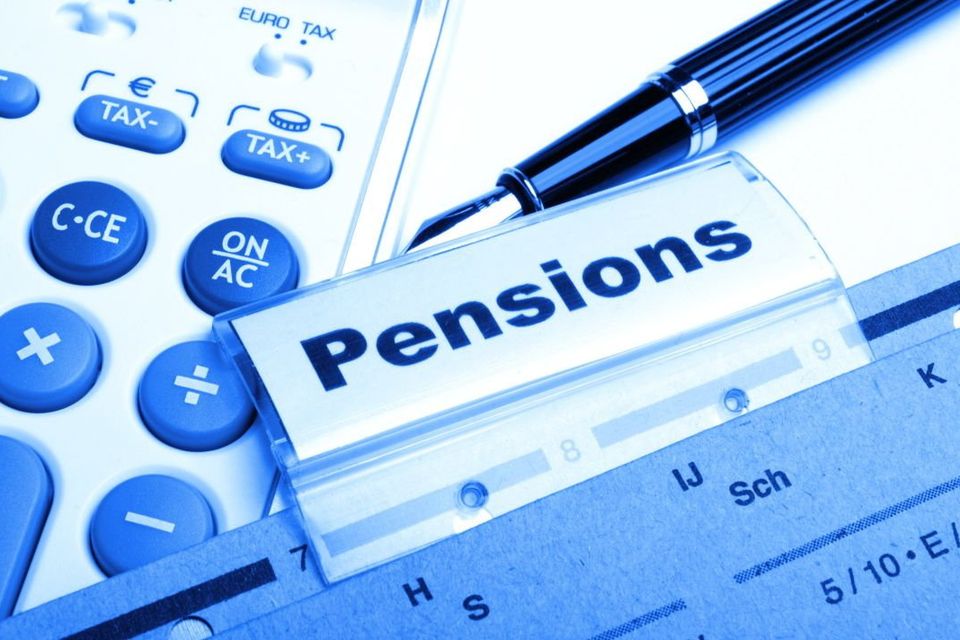When Holly Cairns claimed during her opening address to the Dáil as the new leader of the Social Democrats that she comes from the first generation that will be financially worse off than its parents, spats ensued on social media between baby boomers recalling the economic hardships of the 1970s and 1980s and younger generations who face the prospect of never getting on the housing ladder .
But housing is not the only source of intergenerational conflict – so too is the pension crisis. Many younger people are watching their parents and grandparents enter retirement on final-salary pensions that allow them to change cars once a year, enjoy holidays and weekend breaks, and work on their golf game. By contrast, 57pc of current workers expect to have to depend on the state pension, which currently stands at €265.30 a week.
Not only that, but a chunk of current workers will still be renting once they reach retirement age. While some 90pc of our over-65s are homeowners, just 65pc of 35 to 44-year-olds are likely to become homeowners by retirement age, according to the ESRI. As a result, almost a third of over-65s could be living in income poverty on an after-housing costs basis in the future, up from 14pc at present.
Many pensioners have retired on relatively generous defined benefit schemes that gave them a guaranteed income for life based on years of service and their final salary. But the cost of running these schemes is no longer seen as viable for employers and most current workers are on defined contribution schemes, where their pension payout depends on how their contributions are invested and on how those investments perform.
Mark Ruddy, head of client management at Lockton People Solutions Ireland, says: “On average, the defined benefit landscape gave you 50pc of your final salary, though this went up to 75pc in some cases with good older employers like Guinness, the banks, and the public service. In the defined contribution world, you’d be doing very well if you got 30pc of your final salary in retirement.”
Will you ever be able to afford the comfortable retirement enjoyed by many current retirees? If not, what can you do about it?
If you’re in your 20s
If you’re just getting started in the workplace, you’ll be earning less — in real terms — than workers in their 20s did in the 1990s and 2000s, according to the ESRI. Add in surging rents and the cost-of-living crisis and saving for a pension looks challenging.
But you have two main advantages on your side: time and information. Unlike previous generations, which struggled to navigate the complex jargon of the pensions world, the current crop of 20-somethings has access to bite-sized pension explanations from financial brokers via TikTok and Instagram. John O’Driscoll, managing director of Blueprint Financial Planning, says younger people “have never been more informed”.
“Some financial advisers on Instagram have more than 100,000 followers,” says O’Driscoll, who also doles out 60-second tips on the platform. “We now live in a goal-oriented society: people in their 20s have fitness goals, nutritional goals. They’re saying, ‘I have a personal trainer for my fitness – why not engage a financial adviser for my finances’. There is an appetite out there to become more informed.”
Ideally, you should join your workplace pension scheme from the time you get your first pay cheque, says Mark Reilly, pensions proposition lead at Royal London Ireland. Even if your company doesn’t have a defined contribution scheme, it is obliged to offer you access to a pension, such as through a PRSA. If your company employer does match your contributions, it’s free money. And because the State wants to encourage everyone to set aside money for their retirement, you’ll get generous tax relief. If you put €100 a month into a company pension and your employer puts in €100, that €200 contribution will only cost you €60 if you’re paying income tax at the 40pc rate.
“You’re effectively increasing the value of every euro earned by almost four times by making a pension contribution,” says Glenn Gaughran, head of business development at the Independent Trustee Company.
Thanks to the magic of compound interest, saving into a pension in your 20s has a greater impact on your fund than contributing more at a later stage in life, Reilly says.
However, because a 20-year-old today will likely live well into their 80s, retirement will look differently for them.
“Retirement won’t be a hard point in time, like it is now, rather more a transition to part-time jobs,” Reilly says. “The lines may become more blurred.”
In your 30s
Millennials, who came of age during the crash, are playing catch-up because their earnings took years to recover from the recession, when they may have been unemployed or had to emigrate. Now, 30-somethings could be spending as much as a third of their disposable incomes on rent, while trying to save for a deposit for a home and fork out for hefty childcare costs. Unless you’re a high earner, you’ll likely feel the pinch from setting aside money for retirement. That’s why it’s important to speak to a financial planner or adviser, who will go over your budget and find ways of cutting costs elsewhere to pay for as large a pension contribution as you can afford.
“There are two main pitfalls for any pension savers in their 30s,” Reilly says. “Firstly, insufficient contributions can really impact your pension fund. Many people who start a pension think that that’s all they need to think about. But it’s also hugely important to occasionally review your contribution levels and to increase these as and when it’s possible.
“With up to 30 or even 40 years to go before you will need some of the money you save now, your risk profile when it comes to investment should be at the higher end of the scale. In your 30s, your pension fund is still relatively small, and with such a long investment period ahead, you can probably afford to take some calculated investment risk to give you the best chance of getting a good return on your savings.”
In your 40s
Buying a home may be your main priority: just 39pc of people born in the 1970s own a home, with that figure falling to 32pc if you are an older millennial who was born in the early 1980s. But it’s still not too late to start a pension, if you haven’t already done so.
You’ll be approaching your maximum earnings capacity, so chances are you’re in the higher tax bracket and can claim 40pc tax relief. You still have more than 20 years of investing ahead of you to grow the value of your pension.
“The allowable tax relief on annual contributions increases to 25pc of earnings a year for those aged 40 to 49,” Gaughran says. “It is now increasingly important to look at your financial situation with a financial adviser to see if you can afford to increase your pension contributions.”
In your 50s
If you are 50 years old and don’t have a pension, you’d need to save €533 a month just to have €1,500 per month in retirement, a figure that includes the state pension, according to estimates from Zurich’s pension calculator. However, your monthly contribution could be as little as €320 if you are eligible for tax relief at the 40pc income tax rate.
Reilly says: “I always say to people who are prone to pensions inertia and putting their head in the sand that it’s still not too late to start one because you can always build it up and you might still have a small nest egg that can act as a financial buffer in retirement.”
Between the ages of 50 and 55, you can put in 30pc of your earnings into a pension in one year – up to a limit of €115,000 – and still claim full tax relief at the higher rate of tax, Reilly says. If you’re aged between 54 and 59, you can pay 35pc of your earnings into a pension.
If you’re approaching retirement and don’t own a home, you’re less likely to be approved for a long-term mortgage. But if you do own a home, resist the temptation to top up your mortgage, Gaughran says.
“You could have to postpone your retirement until that top-up loan is cleared, and it could also take you longer than you expect to repay a top-up loan – particularly if an unexpected illness or redundancy hits you at that stage of your life,” he says.
Auto-enrolment is a stepping stone
The gap in our pensions coverage is due to be plugged from next year by auto-enrolment, under which employees will be automatically enrolled into a retirement savings scheme co-funded by their employer and the State. But pension experts fear it won’t be enough to give workers a comfortable life in retirement.
The system is designed to make it easier for employers to offer a workplace pension and to ensure the estimated 750,000 workers who have no occupational or private pension will have a retirement income other than the state pension, which is coming under pressure amid an ageing population. Under the proposal, the combined contributions from the worker, the State and the employer will gradually increase to 14pc from year 10, but the employer’s and the State’s contributions are capped at a gross salary of €80,000.
Mark Reilly, pensions proposition lead at Royal London Ireland, says workers who are opted in to the scheme will still need a personal pension. Auto-enrolment is “great in terms of getting the coverage rate up but it won’t address the question of whether the pension is adequate”, he says.
Mark Ruddy, head of client management at Lockton People Solutions Ireland, agrees.
“It’s only a small stepping stone,” he says. “Ultimately, 14pc of a low salary isn’t going to give you a massive pension. People don’t understand it and the Government has to educate people about what it means for their financial outcomes. Otherwise it’s giving people false comfort.”
We can help take the effort out of this for you by demonstrating how this would work for you and your family and providing you with one cohesive Holistic Lifestyle Financial Plan.
You can arrange a meeting by clicking here to access my diary, email info@smartfinance.ie or call 087 8144 104.







